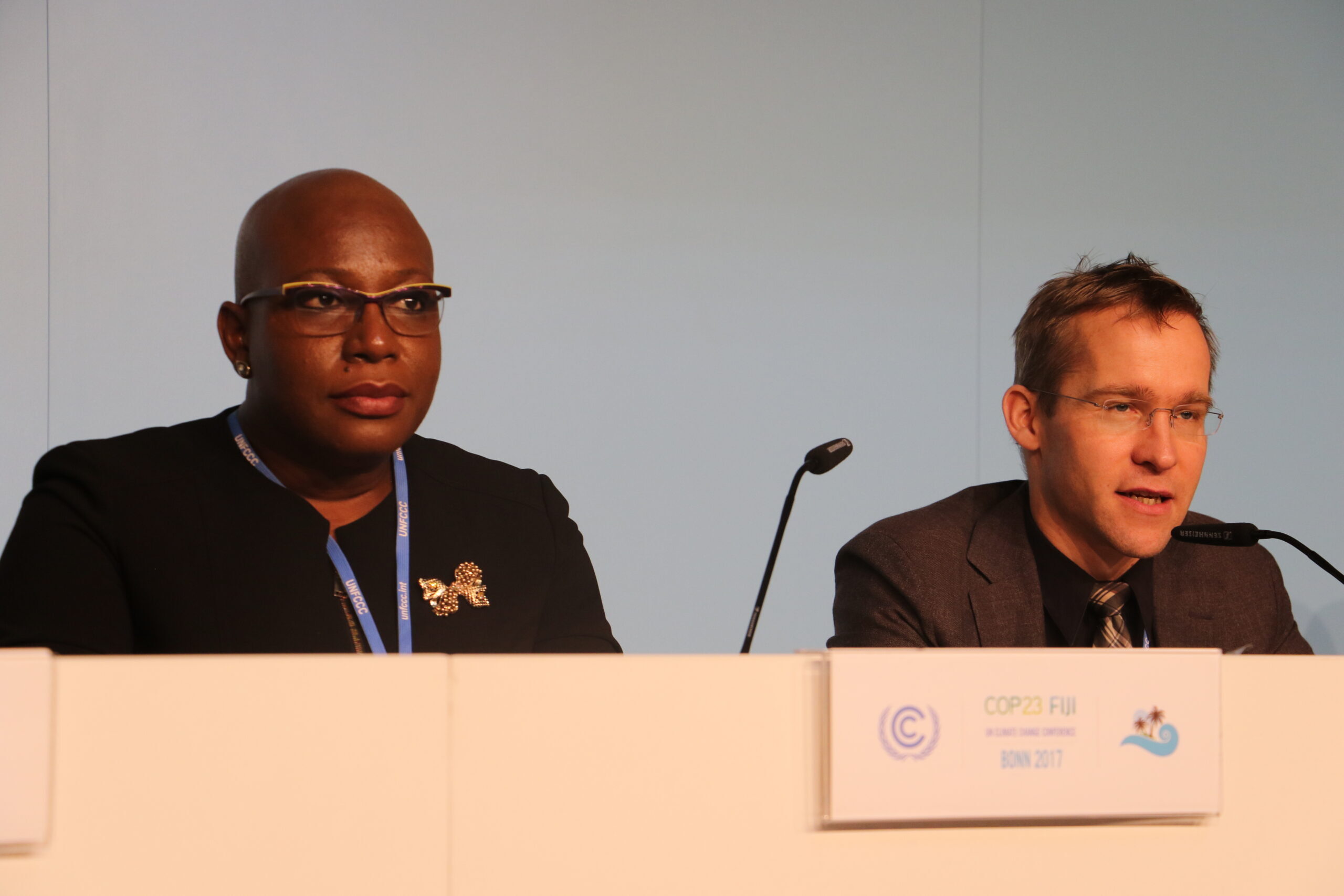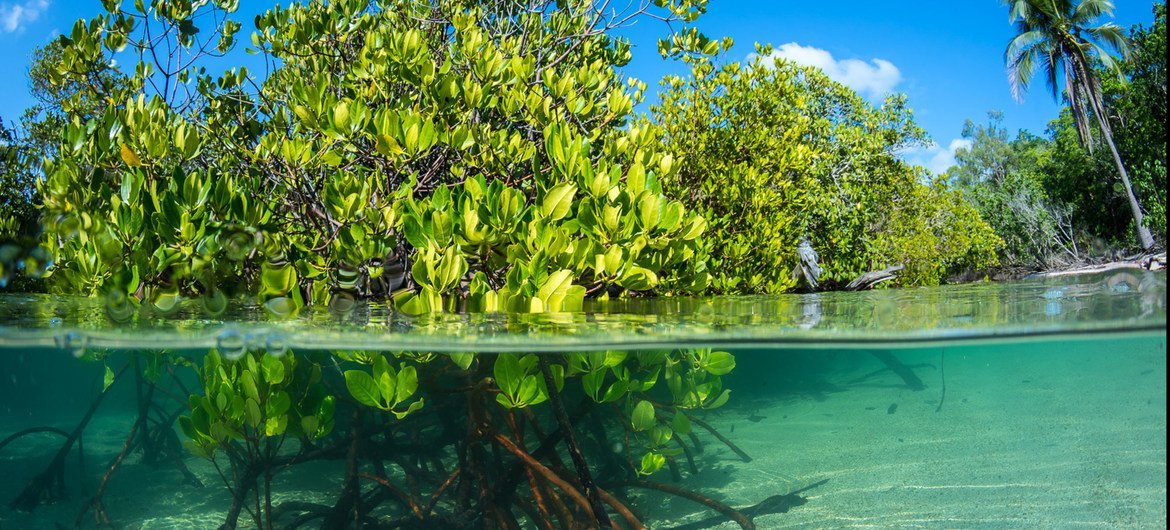With 20,000 participants coming from all corners of the world and with literally hundreds of meetings, panel discussions and side events taking place each day over more than two weeks, there are many important issues being debated and negotiated at a global gathering such as the Climate Change Conference currently taking place in Germany.
 |
| Saint Lucia’s Minister of Sustainable Development, Dr. Gale Rigobert, at COP23: “women farmers are among the most vulnerable to climate change in small islands”. |
Delegates from the Caribbean are actively engaged in all these debates and negotiations but, for small islands states and other vulnerable developing regions, most of the discussions and negotiations actually converge on two main objectives: one is to enable countries to adapt to climate change and therefore reduce its future impacts; the other is to recognise – and to ensure that the international community recognises – that climate change has already caused, and will continue to cause, damage that cannot be repaired. Adaptation is not enough.
The theme of vulnerability is indeed central to the discussions at this Conference of Parties (COP), with delegates being reminded of the special conditions of small islands, as illustrated by the impacts of the 2017 hurricane season. “In at least one case,” says Caribbean Development Bank president, Warren Smith, “we’re talking about 200% of GDP being wiped out overnight.” “And look at Barbuda,” says another Caribbean delegate, “you can’t simply talk about adaptation; you have an island that has been devastated. It will never be the same.”
There is a need to focus on vulnerable countries and regions, especially the small island developing states (SIDS), but there is also a need to focus more directly on the most vulnerable groups and people within those countries and regions. This was one of the messages conveyed by Saint Lucia’s Minister of Sustainable Development, who also has responsibility for gender relations, and who, on the occasion of COP23’s Gender Day, noted that poor rural women farmers are among the main victims of climate change in the Caribbean.
Twenty years ago, only experts spoke of “climate change”, yet this term is now used by all of us – and we know what it means. Then a few years ago, “adaptation” and “mitigation” also entered our vocabulary, and we know now that our response to climate change involves making us better able to cope with change (adaptation), while at the same time dealing with the causes of that change (mitigation).
The next expression that needs to enter our vocabulary is “loss and damage”, because it is a concept that is highly relevant to the needs and realities of the Caribbean. For the Caribbean, it is a theme that echoes the call for reparations for slavery, because it also has deep political roots. By advocating for a mechanism to compensate for loss and damage, vulnerable countries want to establish the moral, ethical and legal case for a transfer of resources that will help them to cope with those impacts to which one cannot adapt, those impacts that result in the displacement of people, in the collapse of economic activity, in the loss of ecosystems and vital resources.
Loss and damage has been a critical item in climate change negotiations for quite some time, and it “is the most political issue in our current negotiations,” said one of the Caribbean negotiators at the Bonn Conference earlier today. It is a contentious issue, because dealing with loss and damage will require funding and other means of implementation, but also perhaps because accepting the concept of loss and damage implies an acceptance of the fact that developed countries have caused major, irreparable damage to other parts of the world.
As COP23 enters its final phase with the opening of the high-level segment on Wednesday 15 November, the United States and to a lesser extent the other developed countries are therefore resisting the efforts of small islands and other vulnerable countries to secure strong and explicit language on loss and damage. But small island delegates are not giving up, and they are presenting recommendations that would at least keep “loss and damage” on the agenda of all future negotiations and that would recognise the need for dedicated financing mechanisms.
“We can submit projects for mitigation,” says one of the small island delegates, “we can submit projects for adaptation; I now want to see the day when we will be able to submit projects for loss and damage, projects that avert, minimize and address loss and damage consistent with the current and emerging needs of developing countries.”
Over past decades, global negotiations – on human rights, women’s rights, climate change and other themes – have followed similar paths, from the recognition of an issue to the formulation of a concept, then leading to an agreement and then to implementation. The needs of SIDS are now clearly on the agenda, meaning that the focus must now be on implementation so as to allow countries and communities to adapt, prevent losses, and repair the damage caused by a changing climate.
